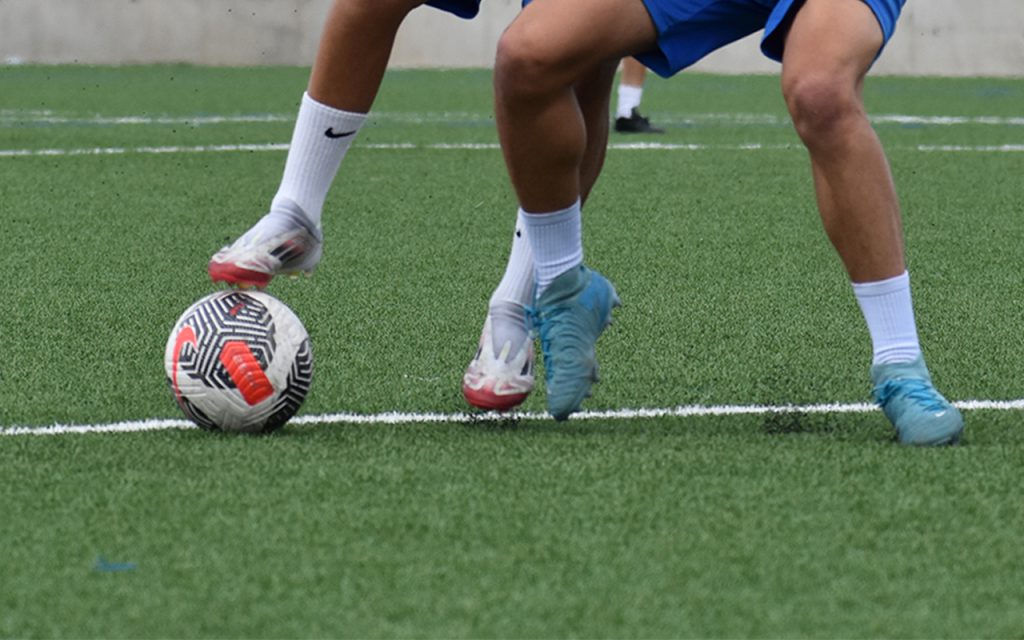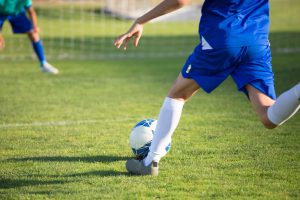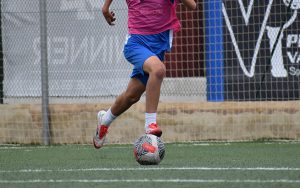To improve decision-making in soccer, you need more than just physical ability. Great players aren’t always the fastest or strongest—they’re often the smartest. They think one step ahead, know when to pass or dribble, when to press or hold, and how to control the tempo of a game with a single choice.
That kind of intelligence doesn’t just come from talent—it’s trained, developed, and sharpened over time. In high-performance environments where cognitive training is a focus—like those offered through football academies that guide players through match-specific scenarios, this aspect of the game is treated as seriously as technique or conditioning.
Let’s break down what decision-making really is in soccer, and how you can become the player who sees things faster, makes smarter moves, and influences games through brainpower—not just boots.
Table of Contents
What Does “Good Decision-Making” in Soccer Really Mean?
In simple terms, it’s choosing the best option available at the right time, over and over again. Whether you’re a defender under pressure or a striker with a split second to shoot or pass, decision-making is what separates a good action from a great one—or a costly mistake.
Examples of great decisions in a match:
- A midfielder switching play instead of forcing a pass through traffic
- A full-back delaying a tackle to prevent a foul in a dangerous area
- A striker holding the ball for support rather than shooting into a crowd
- A winger cutting inside instead of running down a closed lane
Each of these decisions requires scanning, awareness, and confidence.
The Three Layers of Match Decision-Making
🧠 1. Perception – What are you seeing? Who’s around you? Where’s the space?
⚙️ 2. Processing – What are your options? Which is safest? Which is most effective?
🎯 3. Execution – Can you perform the right action with the right technique?
If your perception is delayed, your processing is off. If your execution isn’t clean, even the right idea falls apart. Improving decision-making means training all three layers, not just one.
Why Players Struggle with Decision-Making
It’s not always about a lack of skill. Often, it’s about the speed and quality of thinking. Players may:
❌ Rush decisions due to pressure
❌ Misread teammates or opponents
❌ Struggle with confidence in split seconds
❌ Repeat predictable patterns that defenders learn to read
The good news? These habits can be broken and rebuilt through targeted mental training and realistic scenarios.
8 Proven Ways to Improve Decision-Making in Soccer
🧠 1. Train Under Pressure
Perform drills where you have limited time and space. This forces your brain to make quicker decisions. Try:
- 1v1 + 1 drills (pressure plus an outlet)
- Small-sided games (3v3, 5v5) with reduced space
- Rondos with time limits to force faster reactions
The more pressure you experience in training, the easier it feels in matches.
👀 2. Develop Your Scanning Habit
Players who scan frequently (before and after receiving the ball) are more confident and composed.
Tips:
- Scan every 3–5 seconds, especially before receiving
- Use cone scanning drills during warm-ups
- Pair scanning with quick passing and turning exercises
Scanning boosts your perception layer of decision-making.
📺 3. Watch Pro Matches with Purpose
Study players in your position. Don’t just watch the goals—watch the movement, the moments before the pass, and the decisions they don’t make.
📝 Ask yourself:
- What did they see that led to that play?
- How did they adjust after a mistake?
- What options did they have—and which did they choose?
Use that knowledge as a mental model for your own game.
🔁 4. Add Constraints to Practice
Add rules that force smarter thinking:
- Two-touch only
- Pass before shooting
- Must switch play after 3 passes
These constraints guide smarter choices and simulate real-match moments when you can’t rely on instinct alone.
🧩 5. Play Multiple Positions in Training
The more roles you experience, the more you understand the game from different angles. This builds:
- Better spatial awareness
- Empathy for teammate positioning
- Improved timing and movement decisions
Midfielders especially benefit from knowing what defenders and forwards see. This kind of tactical empathy makes you a better passer and playmaker.
🔊 6. Use Communication to Support Thinking
Talking during games isn’t just about being loud—it organizes your brain.
✅ Call options before you receive
✅ Direct teammates (“man on”, “turn”, “switch”)
✅ Use your voice to buy time and keep others focused
Communication improves group decision-making, not just individual thinking.
🎮 7. Visualize Scenarios Before They Happen
Mental rehearsal is a secret weapon. Before a match or training, close your eyes and imagine:
- Receiving under pressure and finding the outlet
- Timing your press on the first touch
- Seeing a winger’s run and delivering early
Even 5–10 minutes of visualization primes your brain for quicker decisions on the field.
⏳ 8. Reflect on Your Games
After a match, don’t just focus on goals or mistakes. Focus on decisions:
- Where did you choose well?
- Where were you late or unsure?
- What options did you miss?
Keep a notebook and track patterns—it turns mistakes into learning moments.
How Coaches Can Support Better Decision-Making
Good coaches don’t just demand results—they guide smart decisions. Coaches can:
- Ask questions mid-drill: “Why did you pass there?”
- Break down plays in video sessions
- Set up game-relevant scenarios in training
- Reward smart ideas, not just successful outcomes
If you’re training in an environment that values cognitive development as much as physical ability, you’ll naturally start thinking quicker, reading more, and choosing better under pressure.
Turn Smart Choices into Game-Changing Moments
To improve decision-making in soccer, you need to train your brain like a muscle. Every good pass, defensive move, or run off the ball starts with a choice—and the faster and smarter you make those choices, the better your game becomes.
Yes, skill matters. Yes, fitness matters. But the players who rise to the top are the ones who think faster, see clearer, and execute better when the heat is on.
So the next time you train, don’t just ask: “How hard did I work?” Ask:
👉 “How smart did I play?”
👉 “What did I learn from today’s decisions?”
👉 “What could I have done differently?”
When your brain joins your boots, the game slows down—and that’s when magic happens. ⚽🧠🔥




